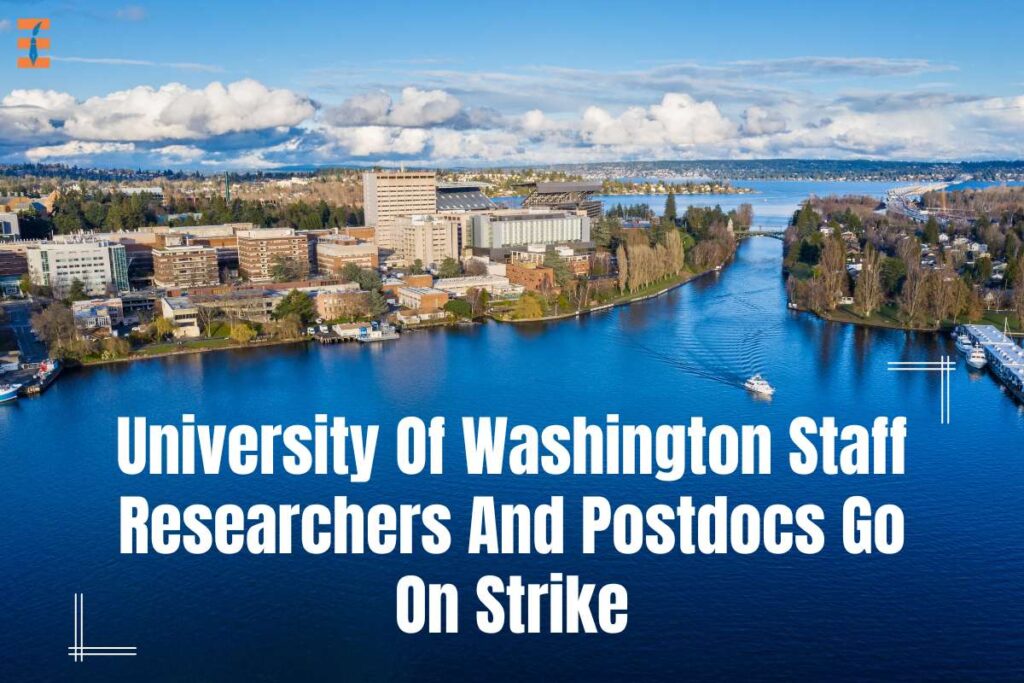2400 postdocs and staff researchers at the University of Washington (UW) went on strike today after months of contract discussions, claiming that the university’s suggested contract terms don’t amount to a fair salary. The roughly 6000 graduate students at UW won’t go on strike, but some of them have vowed not to cross the picket lines because they are part of the same union as postdocs and staff researchers.
The strike follows a change in state law that took effect on January 1 and required organisations with 51 or more employees to pay overtime-exempt salaried staff at least $65,484 annually, which is more than many UW postdocs were previously paid.
UW President Ana Mari Cauce argued in a letter dated March 31 to the Washington State Department of Labour and Industries that the minimum salary thresholds “are not financially feasible” and that postdocs should be exempt based on guidelines for medical residents and fellows. The minimum salary thresholds will increase annually and are expected to exceed $80,000 by 2026.
However, the agency disagreed, making it clear in a response dated May 16 that it sees postdocs as professionals who must abide by the law.
In order to comply with the law, the institution raised the compensation of some postdocs and staff researchers at the beginning of the year. Postdocs compensated by fellowships, however, did not receive the same compensation increase. Additionally, the university hasn’t promised to raise postdoc compensation in subsequent years to reach the federal minimum.
Additionally, the bargaining team for staff researchers, which is negotiating a different contract, is fighting for pay that accounts for Seattle’s rising cost of living. According to Jai Broome, a medical geneticist at UW and a member of the bargaining team, they are also negotiating for additional benefits including a child care fund and access to a sexual harassment prevention programme that is currently available for graduate students and postdocs.
Postdocs, researchers at University Of Washington hold strike rally in Red Square
“We are very disappointed at the postdoctoral researchers and research scientists’ decisions to strike after some significant progress was made in both negotiations recently,” a university spokesperson said in a statement. “The University of Washington has continued to bargain in good faith and has offers on the table in both negotiations that are fair and represent significant wage increases.”
The strike is “not something any of us want to do,” according to Baker. However, given our circumstances, we must.
In a letter to Cauce last week, almost 100 UW faculty members pleaded with university leaders to maintain postdoc earnings above the federal and state minimum criteria. “Since the majority of postdocs are paid through our grants, we are in a unique position to understand the strain that these high compensation standards place on our research budgets. We are also in the best position to comprehend how allowing postdocs to work extra would be detrimental to our work at University of Washington.
Forced postdocs to keep track of their hours and request overtime pay, according to the letter writers, might “further exacerbate the power imbalance between postdocs and PIs, who may pressure postdocs to work overtime without reporting extra hours.” Additionally, they said that it wouldn’t be realistic for postdocs to keep track of their hours and that it would add to the administrative load. “Postdocs read papers while riding the light rail to work. Sharona Gordon, a professor of physiology at the University of Washington and one of the letter’s main authors, observes that postdocs respond to calls and Slack messages at all hours of the day.
Cauce replied: “While some PIs, like you, have indicated your grants can accommodate annual volatility and sustain increases of this magnitude, others have stated unequivocally that their grants cannot.” She also said that faculty members will have the choice to pay their postdocs more than the minimum if they are able to.
It could be the case. However, Gordon contends that the high cost of living in Seattle is making it more difficult to attract postdocs, and that it will be simpler for PIs to include greater salaries in their grants if they can cite a university policy or state legislation requiring them to do so. She asserts, “I think we’re not going to be successful in securing anything beyond the [National Institutes of Health minimum] for our postdocs if everyone at the University of Washington is asking for a different arbitrary figure.
The institution must establish a minimum wage that pays the striking researchers a living wage. Because of how long we’re asking these researchers to take a lower compensation in exchange for the possibility of being able to stay in academia, a problem is already developing in finding people to fill postdoctoral positions, according to Broome. Unless we apply pressure to pay levels higher, this situation won’t change. We have no time to waste.

